Resources
Get Matched to the Right Builder
FIND THE PERFECT CUSTOM HOME BUILDER WITH OUR FREE ASSESSMENT
Tired of feeling overwhelmed? Look no further. We'll match you to the right builder in the Houston area and save you months of valuable time and money you'd spend trying to find one on your own. Click below to get started!
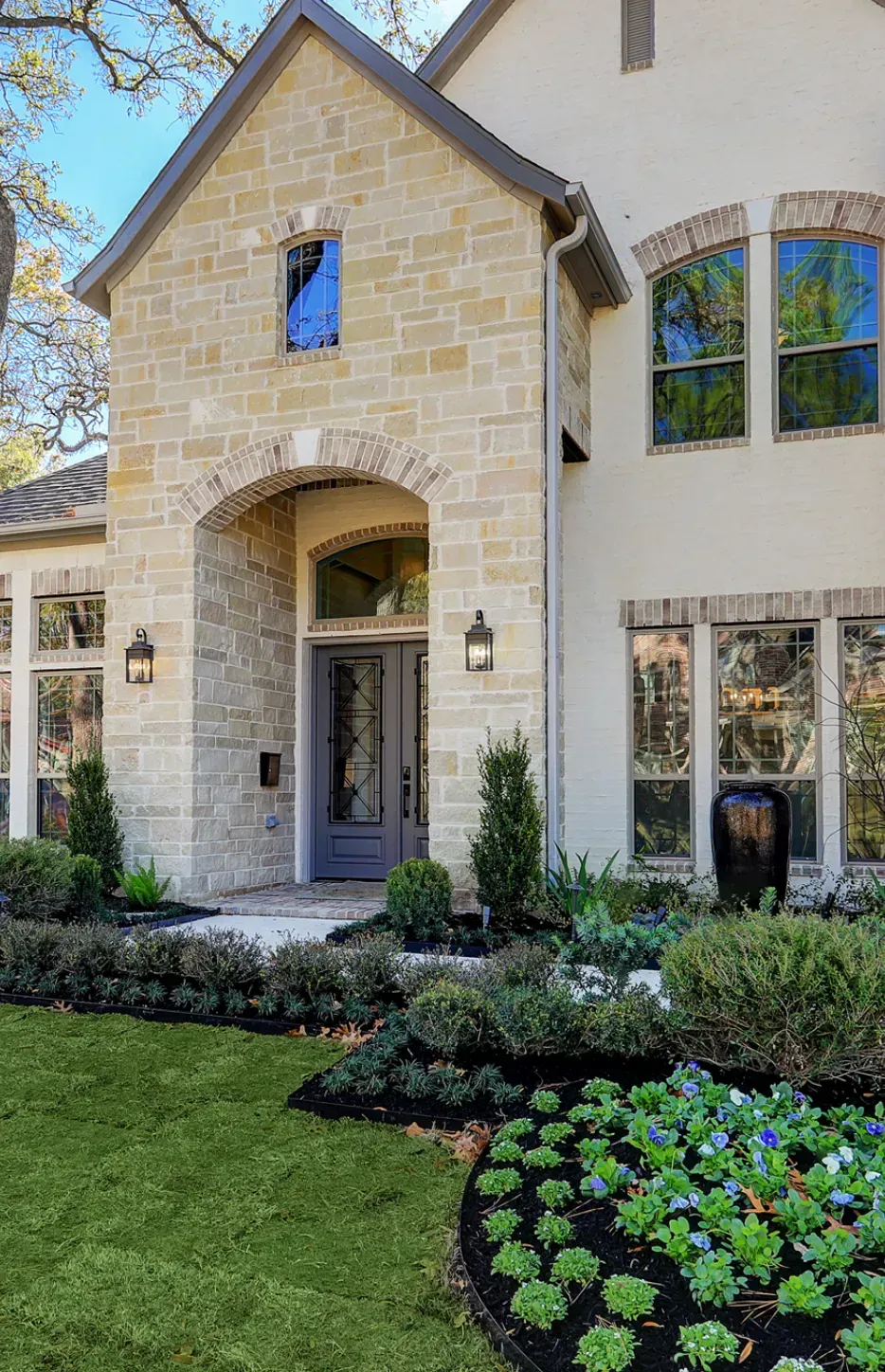
Download The Ultimate Custom Home Building Guide
A Step-by-step guide to building your custom dream home.
Download The Ultimate Custom Home Building Checklist
Finance
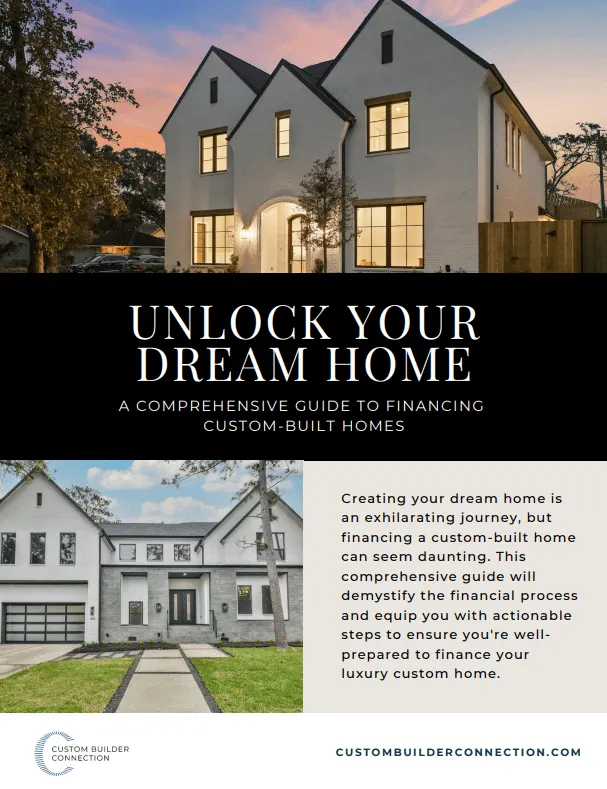
Finding Lot
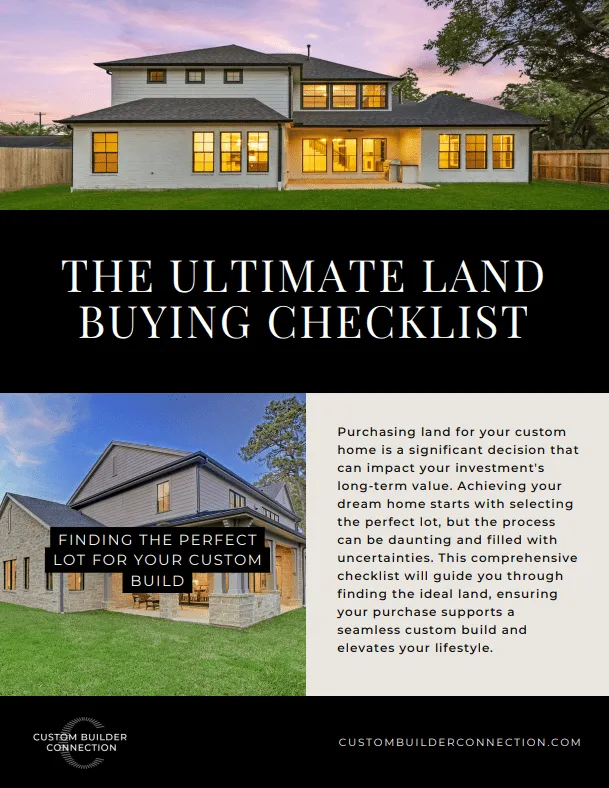
Best Builder
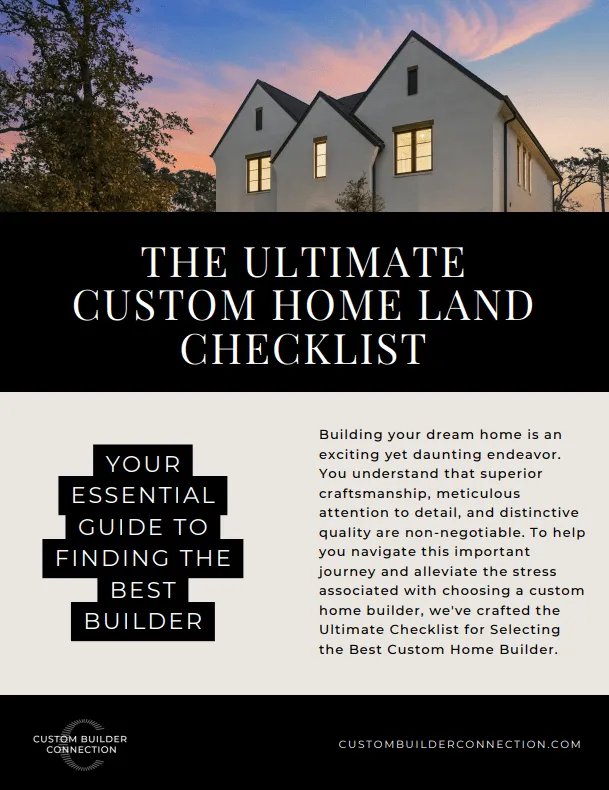
Explore Our Gallery of Custom Homes
Browse our finished projects that display the craftsmanship of the builders we’ve matched with homeowners – turning dreams into reality.
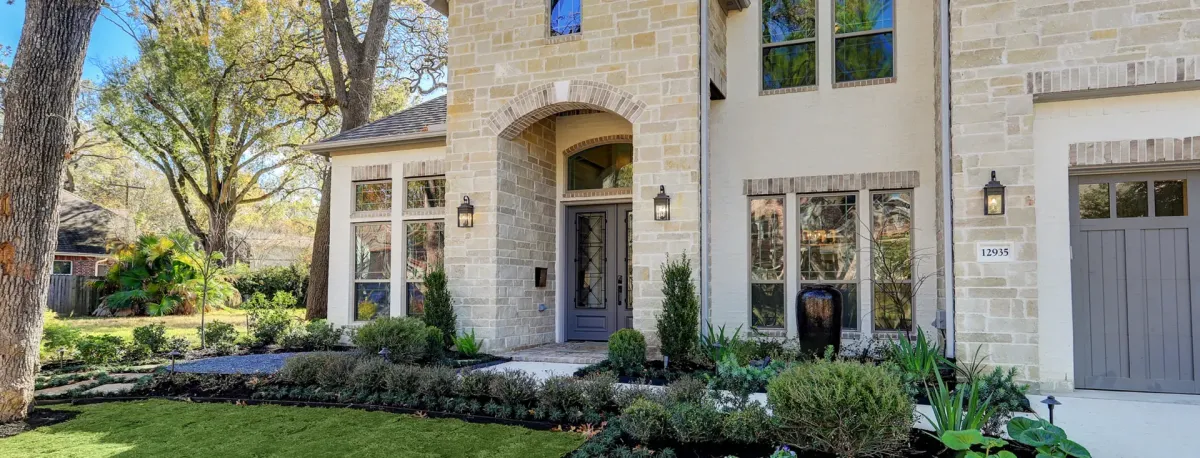
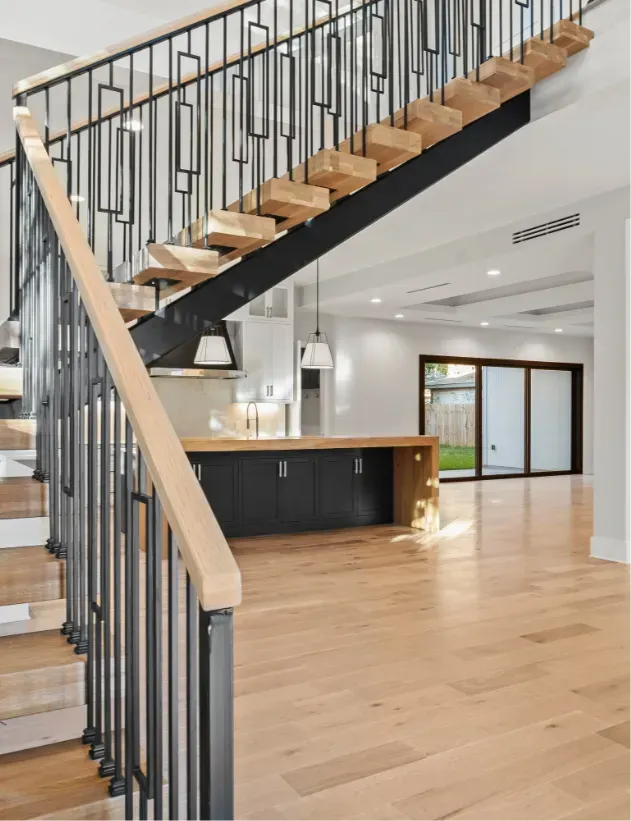

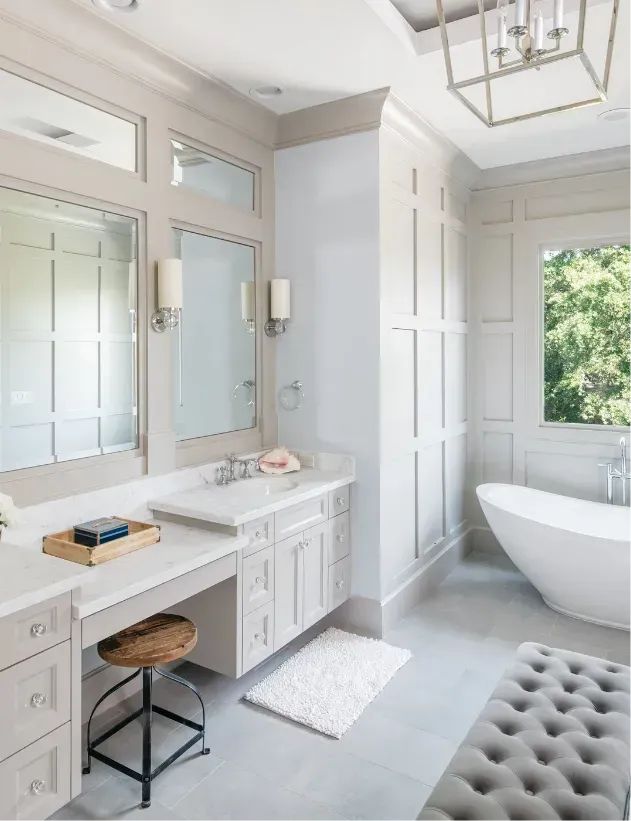
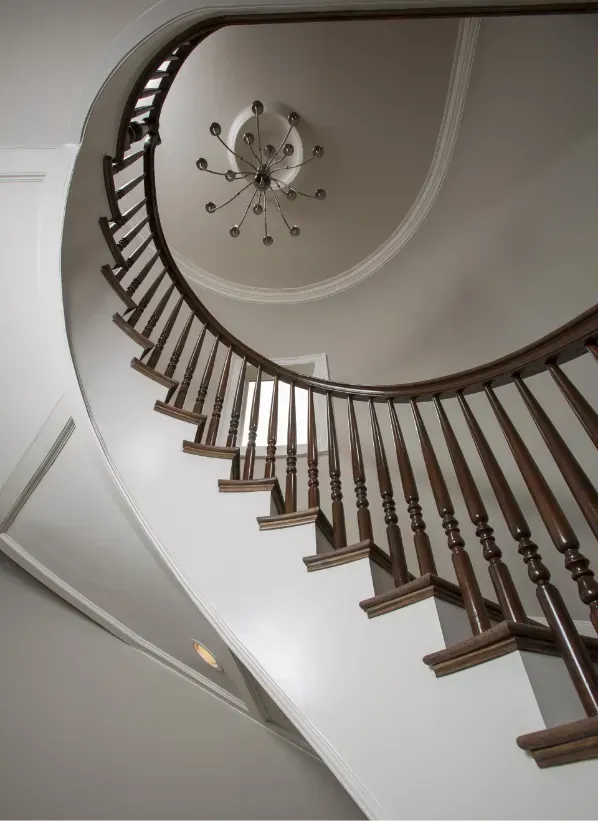
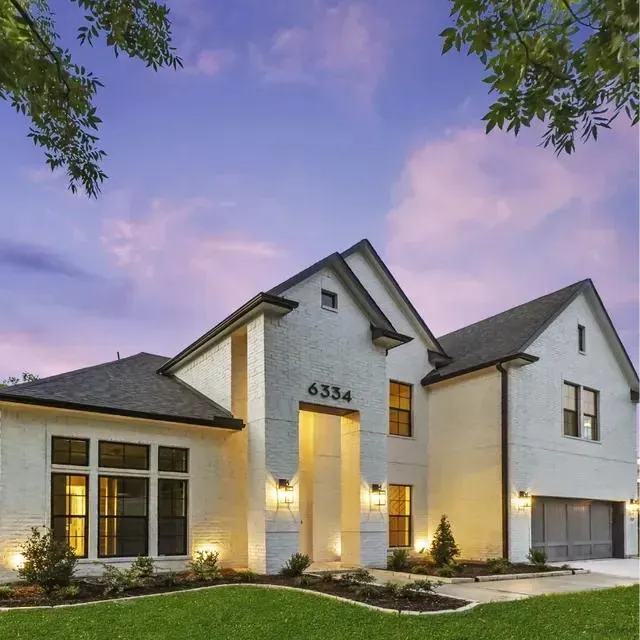
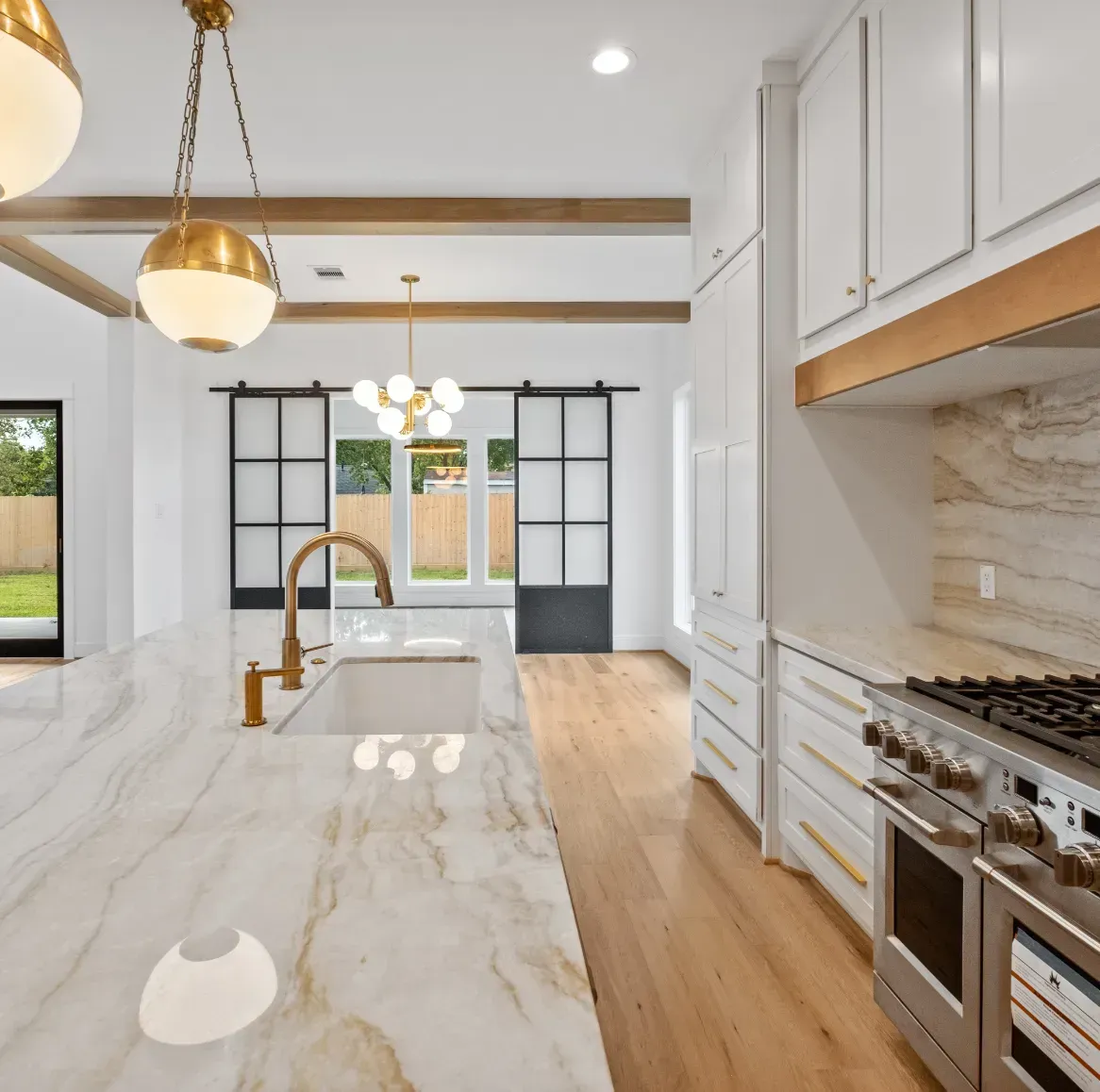
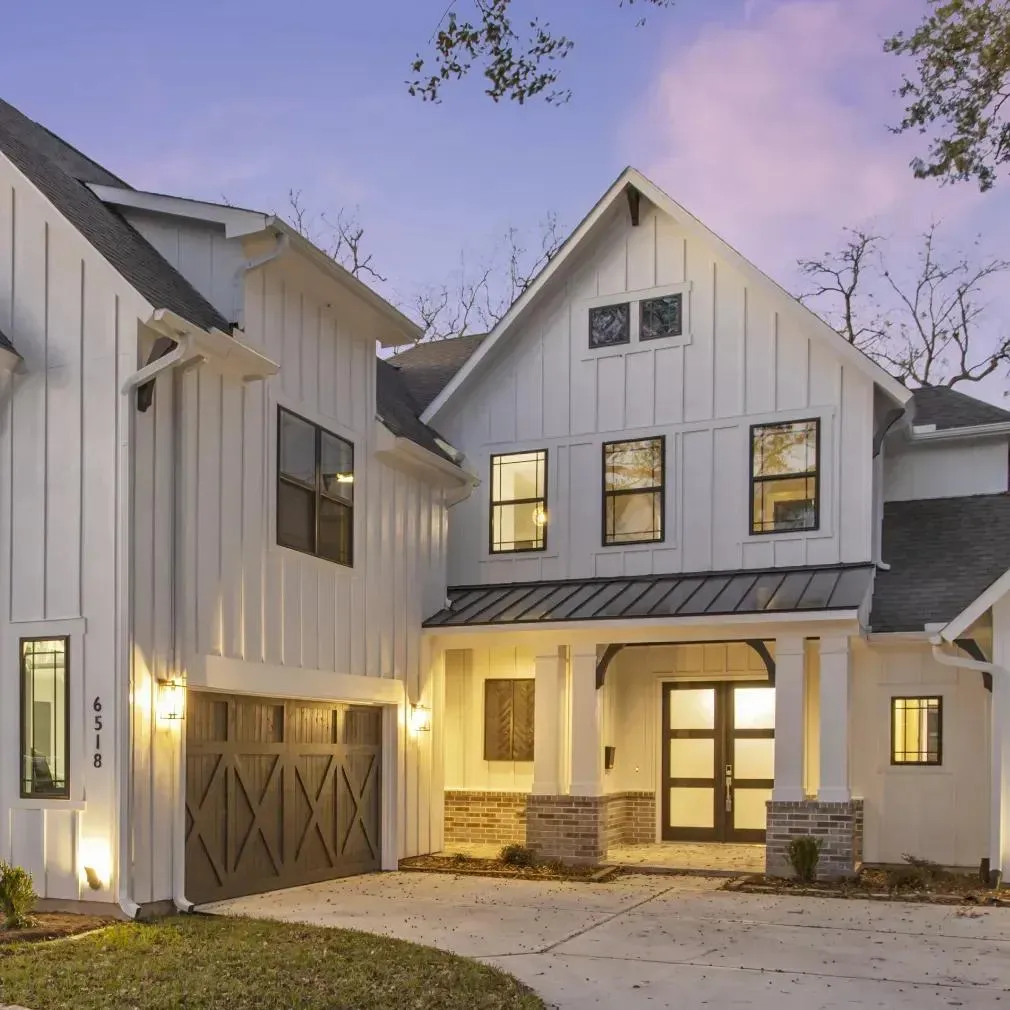
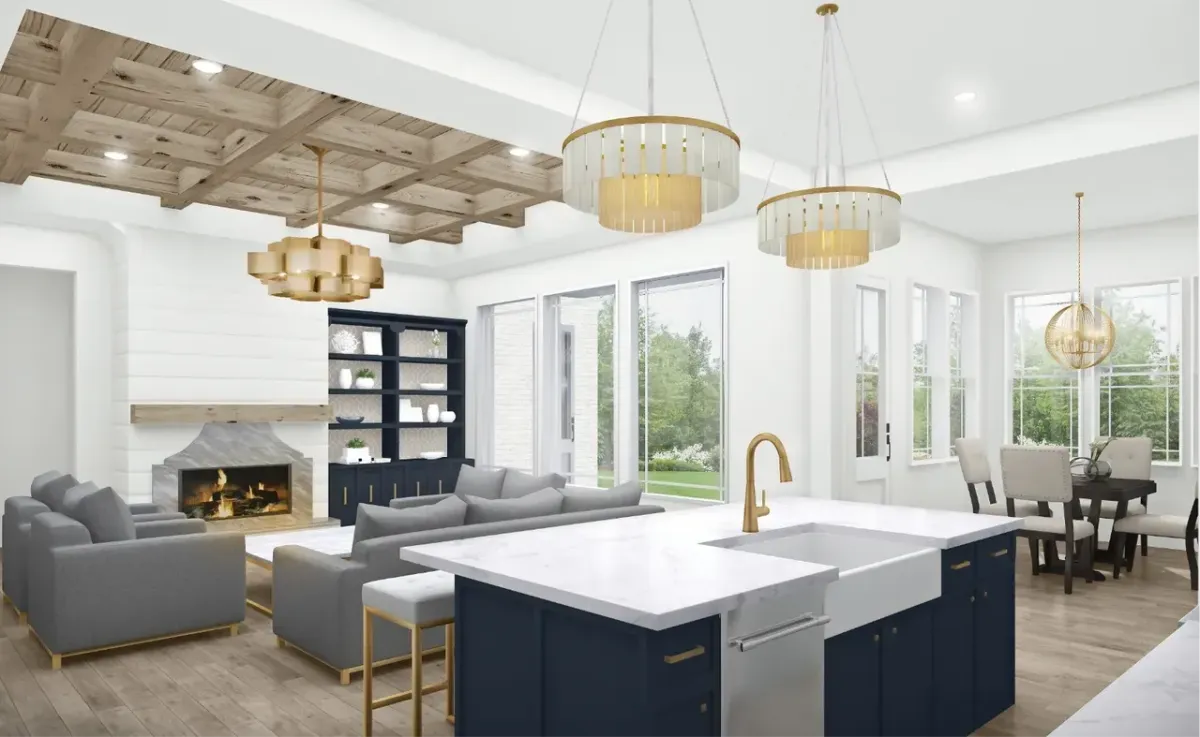
BLOG
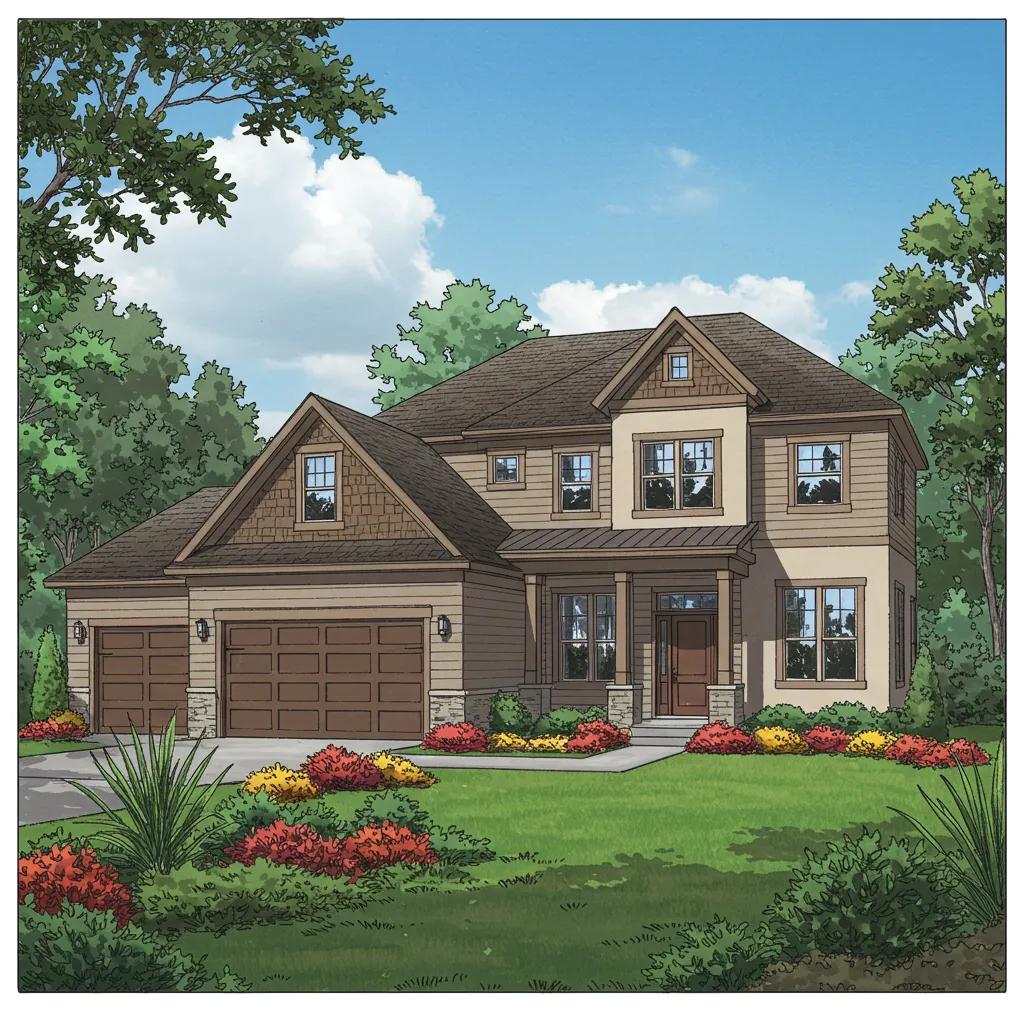
Discover How Custom House Plans Surpass Pre-Designed Options
Selecting the right foundation for your build can turn a house into a lasting legacy. How do custom home blueprints stack up against pre-designed options when it comes to your dream home investment? This deep dive explores the defining traits of bespoke architectural plans versus off-the-shelf blueprints, weighing initial expenses against long-term financial gains. We’ll dissect personalization and site-specific advantages, the caliber of craftsmanship, cost structures, project timelines, and future resale appeal. Ultimately, you’ll gain clarity on key decision factors and discover how Custom Builder Connection’s complimentary consultation service effortlessly pairs homeowners with seasoned builders to launch a successful home-building venture.
What Exactly Are Custom Home Plans and Their Core Advantages?

Custom home plans are architectural blueprints meticulously crafted to embody a homeowner’s unique vision, specific site conditions, and desired lifestyle. By fine-tuning every detail—from the flow of living spaces to the nuances of exterior finishes—these plans result in homes that perfectly harmonize with individual preferences and property characteristics. Homeowners gain complete creative command, the ability to select superior materials, and opportunities to enhance energy efficiency, all of which contribute to greater enduring value.
Before we delve into the specifics, consider these primary benefits of opting for custom home plans:
Unmatched Personalization: Floor plans, exterior elevations, and interior finishes align precisely with your lifestyle needs and aesthetic sensibilities.
Optimized Site Integration: The home’s orientation, grading, and landscaping are thoughtfully integrated with the local climate and topography.
Superior Craftsmanship Quality: The selection of premium materials and adherence to exacting workmanship standards elevate the home’s durability and aesthetic finish.
Enhanced Energy Efficiency: Customized building envelopes, passive heating and cooling strategies, and integrated renewable systems significantly reduce long-term utility expenses.
Increased Resale Appreciation: Unique features and high-end finishes often command premium resale values in competitive housing markets.
What Sets Custom Home Plans Apart in Terms of Uniqueness and Personalization?
Custom home plans grant you the ultimate freedom to define spatial arrangements, room dimensions, and architectural embellishments. Unlike generic templates, bespoke designs readily accommodate special requests—such as dedicated home offices, universally accessible layouts, or suites for multi-generational living—ensuring every square foot serves its purpose with maximum functionality and aesthetic coherence. This unparalleled level of personalization cultivates a deeper emotional connection and a sense of satisfaction that standardized designs simply cannot replicate.
Tailoring a home blueprint fosters a more engaged ownership experience and results in properties that deeply resonate with future buyers seeking individuality and thoughtfully purposeful design.
How Does Site-Specific Design Elevate the Value of Custom Plans?
Site-specific design meticulously tailors each plan to the local orientation, soil composition, and existing landscape features. By strategically positioning windows to capture optimal sunlight, designing roof pitches for efficient precipitation runoff, and preserving natural site assets, homeowners benefit from more comfortable living environments and reduced initial site preparation costs. This intelligent adaptation also enhances the home’s curb appeal and minimizes long-term maintenance challenges.
Integrating site characteristics into the design process significantly boosts the home’s performance and aesthetic harmony, setting a strong foundation for discussions about quality craftsmanship.
What Are the Advantages in Quality and Craftsmanship for Custom Homes?
Custom home construction places a premium on high-grade materials and the expertise of seasoned tradespeople, ensuring precise installation and exceptional finishing. Builders frequently source specialized products—such as reclaimed timber beams, artisan tiles, or advanced glazing systems—resulting in elements that are both durable and visually captivating. Rigorous site supervision and bespoke specifications culminate in craftsmanship that consistently surpasses the quality found in typical stock-plan constructions.
Superior construction practices translate directly into enduring structural integrity, which in turn supports higher resale valuations and provides homeowners with invaluable peace of mind.
How Do Custom Plans Influence Long-Term Value and Resale Potential?
Custom-built homes frequently outperform market averages in terms of appreciation, largely due to their distinctive features and superior perceived quality. Real estate professionals report that bespoke properties can achieve resale premiums ranging from 5% to 15% over comparable homes built from stock plans. Unique architectural details, advanced energy-efficient systems, and meticulous craftsmanship signal lasting value to discerning buyers, often reducing the time a property spends on the market and bolstering the overall return on investment.
The Resale Value Advantage of Custom Homes
Custom homes typically command higher resale values owing to their unique attributes and superior build quality, potentially yielding resale premiums of 5% to 15% when compared to homes constructed from stock plans. This enhanced value is directly attributable to distinctive architectural details, energy-efficient systems, and high-quality craftsmanship, all of which strongly appeal to discerning buyers.
The investment made in personalized design and superior quality truly pays dividends when future resale demand favors one-of-a-kind, meticulously crafted properties.
What Are the Typical Cost and Timeframe Considerations for Custom Plans?
Investing in custom plans typically involves higher upfront design and approval expenses, generally ranging from 5% to 15% of the total construction budget, or approximately $3 to $8 per square foot. Construction costs themselves can vary widely, from $150 to over $700 per square foot, depending on the level of finishes selected and the complexity of the design.
What Are Pre-Designed House Plans and Their Key Advantages?

Pre-designed house plans, also commonly referred to as stock or catalog plans, are pre-engineered blueprints readily available for immediate purchase. They feature standardized dimensions and finishes tailored to broad market preferences. Homeowners benefit from reduced decision fatigue and a simplified procurement process, making stock plans a practical choice for projects with constrained budgets or tight timelines.
Key advantages offered by pre-designed plans include:
Lower Initial Investment – Plan packages typically range from $500 to $3,000, with minimal associated design fees.
Accelerated Project Timeline – Ready-made documents allow builders to commence construction within days rather than months.
Predictable Specifications – Established details streamline the process of material ordering and contractor estimation.
Ease of Visualization – Renderings and sample photographs assist homeowners in quickly aligning their expectations with the design.
How Do Pre-Designed Plans Deliver Cost Efficiency and Affordability?
Pre-designed plans leverage the power of economies of scale, effectively spreading design costs across a larger number of buyers. Reduced architectural investment and standardized design elements significantly compress overall expenditures, enabling homeowners to allocate a greater portion of their budget toward interior finishes or site enhancements. Stock plans also eliminate the need for costly change orders when modifications are minimal or deemed unnecessary.
Affordability and predictable budgeting are the primary financial appeals of pre-designed house plans.
Why Are Pre-Designed Plans Quicker and Simpler to Build?
With complete construction documents already prepared, builders can bypass lengthy schematic design and permit application phases. Contractors are familiar with the layouts and specifications, which accelerates the bidding, material procurement, and scheduling processes. Streamlined workflows minimize the risks of delays and cost overruns, positioning stock plan builds as an efficient route from initial concept to move-in readiness.
A simplified construction process is particularly appealing to homeowners who prioritize timeliness over the exclusivity of bespoke design.
What Customization Limitations Are Associated with Pre-Designed Plans?
Stock plans impose restrictions on layout modifications and aesthetic revisions, often permitting only minor adjustments—such as swapping window styles or adding small room extensions. Significant reconfigurations can necessitate costly engineering reviews and redraws, potentially negating the initial cost savings. Consequently, homeowners may find it challenging to adapt stock blueprints to unique lifestyle requirements or specific accessibility needs.
This limited flexibility highlights the inherent trade-off between speed of execution and the degree of personalized design achievable.
How Does the Absence of Site Specificity Impact Pre-Designed Homes?
Standardized plans are developed assuming generic site conditions, which can lead to potential mismatches concerning orientation, slope management, or foundation design. Builders might incur additional expenses for unexpected grading, drainage solutions, or structural adaptations. Furthermore, misaligned solar exposure can diminish occupant comfort and increase energy consumption.
Avoiding site-specific cost overruns often requires a thorough evaluation of stock plans prior to purchase.
What Are the Advantages and Disadvantages of Selecting Stock House Plans?
Before making your final decision, it’s important to weigh these key considerations:
Significant cost savings on design fees
Faster permit approval and construction commencement
Established plans simplify the contractor selection process
Limited personalization options for layouts
Potential for additional site adaptation expenses
Less distinctive curb appeal compared to custom designs
How Does the Value of Custom vs. Pre-Designed Plans Compare Beyond Initial Costs?

Evaluating the true value necessitates looking beyond initial purchase prices to consider long-term returns, the level of emotional satisfaction, market appeal, and overall sustainability. Both custom and stock plans offer distinct value dimensions that significantly influence lifestyle quality and financial outcomes.
What Financial Returns and ROI Can Homeowners Realistically Expect?
Bespoke homes typically appreciate at a faster rate due to their unique features and high-quality finishes, potentially translating to an incremental resale value of $20,000 to $50,000 or more. Stock plans often follow prevailing neighborhood trends, generating modest gains tied to general market appreciation rather than standout, distinctive features.
ROI projections serve as a crucial guide for allocating your budget effectively between design investments and the execution of the construction phase.
How Do Emotional and Lifestyle Benefits Influence a Home's Value?
A home that perfectly mirrors its owner’s preferences cultivates enduring satisfaction and enhances overall well-being. Customized spaces—such as gourmet chef’s kitchens or thoughtfully designed adaptive home offices—significantly improve daily living and strengthen the emotional connection to the property. Buyers seeking turnkey comfort often place a high value on these intangible benefits, viewing them as well worth a price premium.
Emotional resonance deepens a homeowner’s investment, reinforcing the inherent merit of personalization in the home-building process.
How Do Resale Market Dynamics Affect Each Plan Type?
Custom homes tend to attract a specific segment of buyers who are willing to pay a premium for distinctive architecture, often resulting in a shorter time on the market. Pre-designed homes appeal to more price-sensitive buyers seeking reliable, affordable options, but they may face stiffer competition among similar listings in the market.
Understanding the preferences of the local buyer demographic is absolutely crucial when projecting potential resale scenarios.
What Role Does Energy Efficiency Play in a Home's Value?
High-performance custom designs can lead to substantial savings for homeowners, potentially reducing energy bills by 20% to 40% through optimized insulation, passive solar design, and efficient HVAC systems. These savings enhance the total cost of ownership and contribute to marketability among environmentally conscious buyers. Stock plans typically meet basic code requirements but rarely achieve top-tier energy performance without subsequent retrofit investments.
Sustainability features create tangible long-term savings and significantly bolster a property’s overall appeal.
What Are the Detailed Cost Differences Between Custom and Pre-Designed House Plans?

Examining the line-item expenses provides a clear picture of where premium costs or potential savings arise for each type of blueprint. Factors such as architectural fees, engineering requirements, material selections, labor costs, site preparation, and permitting processes can vary significantly between custom and stock plans.
How Do Architectural and Design Fees Differ?
Custom plan fees: Typically range from 5% to 15% of the construction budget, or $3 to $8 per square foot.
Stock plan purchase: A one-time fee of $500 to $3,000 for complete blueprint packages.
Modification fees on stock plans: An additional $500 to $2,000 per requested change.
The investment in design effectively balances upfront expenditure against project precision and potential long-term savings.
What Are the Key Construction Cost Factors for Each Option?
Custom Builds: Involve the use of premium materials, specialized labor, and intricate design details.
Stock Builds: Typically utilize standard materials, generalized structural components, and streamlined labor processes.
The higher craftsmanship standards inherent in custom homes tend to increase material and labor costs by 10% to 30% compared to stock builds.
Are There Any Hidden or Additional Costs to Consider?
Custom homes often necessitate additional engineering reviews, complex permit negotiations, and bespoke finishes that may exceed initial cost estimates.
Stock plans might incur unexpected site adaptation expenses, require code compliance revisions, or involve unforeseen grading or utility work.
Allocating a contingency fund of 10% to 15% of the total construction budget is a prudent measure to mitigate potential budget surprises.
How Do Regional Variations Impact Overall Project Costs?
Urban centers or high-demand areas typically drive up labor and permit costs by 15% to 25%.
Rural or low-density regions may offer reductions in site preparation and permit fees by 10% to 20%.
Local market conditions play a pivotal role in determining the total project outlay.
How Do Timeframes and Building Processes Differ Between Custom and Pre-Designed Homes?

Custom and stock plans follow distinct pathways from the initial concept to the final completion, significantly impacting the overall project duration and complexity.
What Is the Typical Design Phase Duration for Each Plan Type?
Custom designs generally require a 3- to 6-month period for schematic design, design development, and permit preparation. In contrast, the selection of stock plans and any minor modifications can typically be finalized within 2 to 6 weeks, considerably expediting the pre-construction phases.
How Long Does the Construction Phase Usually Take?
Custom homes often require a construction timeline of 10 to 18 months to complete, largely due to the specialized nature of the work and the coordination involved. Stock plan builds, leveraging familiar processes and repeatable workflows, frequently conclude within 8 to 12 months.
What Are the Permit and Approval Complexities Involved?
Custom projects typically involve multiple review stages with local planning, engineering, and environmental agencies, which can add an estimated 4 to 12 weeks to the overall timeline. Stock plans may qualify for streamlined permit processes if they align closely with local zoning templates.
How Does the Choice of Builder Affect the Overall Process?
Selecting a builder with proven experience in custom construction ensures meticulous adherence to the design intent and quality standards, even if it means a slightly extended timeline. Conversely, contractors specializing in the execution of stock plans can often accelerate schedules and optimize cost efficiencies.
How Can You Make the Right Decision Between Custom and Pre-Designed House Plans for Your Dream Home?

Choosing the optimal plan type begins with a thorough evaluation of your project goals, budget constraints, specific site characteristics, and timeline priorities. Employing a structured approach will guide you toward making a confident and informed decision.
What Key Factors Should Influence Your Choice?
Budget Flexibility – Allocate sufficient funds for design services and superior craftsmanship if personalization is a critical requirement.
Timeline Requirements – Opt for stock plans if you need an accelerated move-in date, or choose custom plans for a precisely tailored outcome.
Lifestyle Needs – Prioritize custom layouts if your unique functional requirements are paramount.
Resale Objectives – Invest in custom details if maximizing future resale premiums is a key objective.
Balancing these essential criteria will help shape an optimal planning strategy for your project.
How Do Site Characteristics Impact Your Decision-Making Process?
Challenging site conditions, such as steep grades, unusual lot shapes, or stringent zoning regulations, often make custom designs the more advantageous choice for precise adaptation. Conversely, standard lot conditions may readily accommodate stock plans with only minimal necessary modifications.
When Is a Custom Plan the More Advantageous Investment?
Custom plans are particularly beneficial when homeowners require highly specialized living spaces—such as multi-generational suites, integrated home office studios, or homes designed to passive house performance standards—and when long-term value and distinctive architectural character are top priorities.
When Are Pre-Designed Plans a More Suitable Option?
Stock plans are an excellent choice for projects with tight budget limitations, demanding rapid timelines, or when families prefer a simpler, more straightforward design process over bespoke customization. Affordable housing developments and speculative building projects often benefit significantly from the use of catalog options.
How Does the Consultation Service Aid in Making the Right Choice?
Custom Builder Connection’s complimentary home building consultation service provides homeowners with expert guidance through a structured evaluation of their goals, budget, lot specifics, and design aspirations. Our seasoned advisors clarify the trade-offs associated with different plan types and connect clients with thoroughly vetted builders who are a perfect match for the project's scope.
Leveraging professional insight significantly reduces decision-making uncertainty and ensures that the homeowner's vision is seamlessly aligned with practical execution capabilities.
How Does Custom Builder Connection Support Your Dream Home Journey?

Custom Builder Connection offers comprehensive, end-to-end guidance throughout your home-building process, from the initial conceptualization of your vision to the final project walk-through, ensuring that every homeowner finds the ideal builder and the most suitable plan type for their unique project.
What Can You Expect from the Complimentary Home Building Consultation?
A thorough review of your project objectives, budget parameters, and site conditions
Expert comparative analysis of the implications of custom versus stock plans
Personalized recommendations for plan modifications or turnkey solutions
A clear roadmap outlining the essential next steps toward builder selection and the permitting process
How Does the Platform Connect You with Qualified Builders?
Our service expertly matches clients with a curated network of local home construction companies that have been rigorously vetted for their experience, craftsmanship, and overall reliability. Builders are carefully selected based on the specific project type—whether custom or stock—to ensure a seamless collaborative experience and consistently high-quality outcomes.
What Resources and Guidance Are Available Throughout Your Project?
Homeowners gain access to valuable planning checklists, intuitive budget calculators, informative material guides, and efficient progress-tracking tools. Ongoing support from our dedicated project advisors helps keep timelines on track and ensures that budget expectations remain transparent throughout the build.
How Can You Begin Your Dream Home Investment Today?
Secure your complimentary consultation by visiting the Custom Builder Connection website or by contacting our advisory team directly via phone. In just a few minutes, you can schedule a personalized session that will lay the essential groundwork for bringing your ideal build and builder partnership to fruition.
Designing or selecting the perfect blueprint is a pivotal moment in any home construction endeavor. By thoroughly understanding the distinct advantages, associated costs, and procedural differences between custom and pre-designed plans, you can effectively align your vision with practical realities. Whether your priority is unique personalization or streamlined efficiency, making informed decisions is the surest path to a rewarding and successful investment. Connect with Custom Builder Connection today and take the crucial first step toward your dream home with a complimentary consultation.
Contact Us Today To Learn More
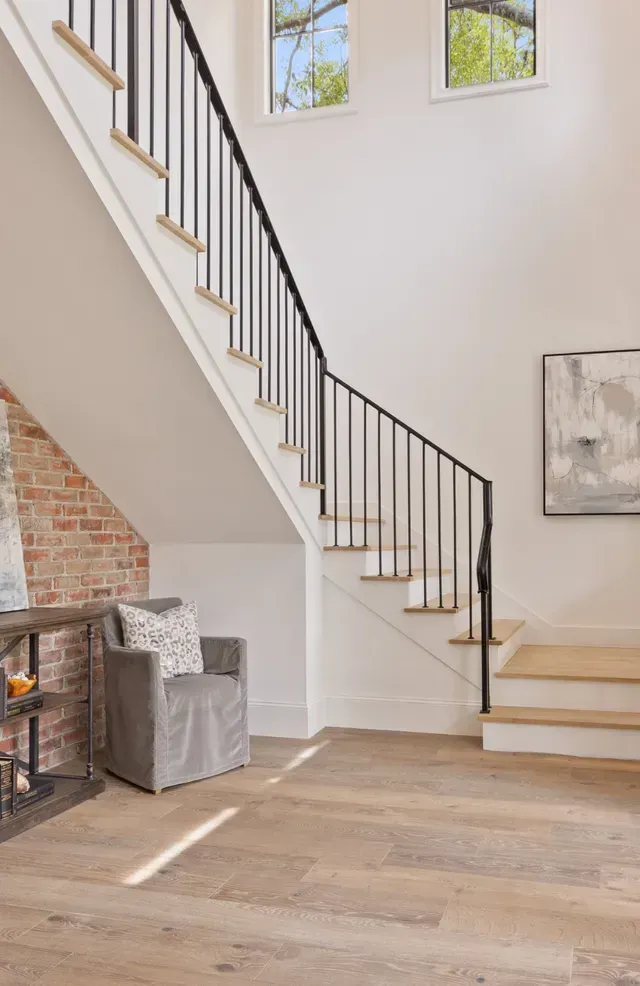
Phone: +1 713-304-5330
Address: 8588 Katy Fwy #450, Houston, TX 77024, United States


